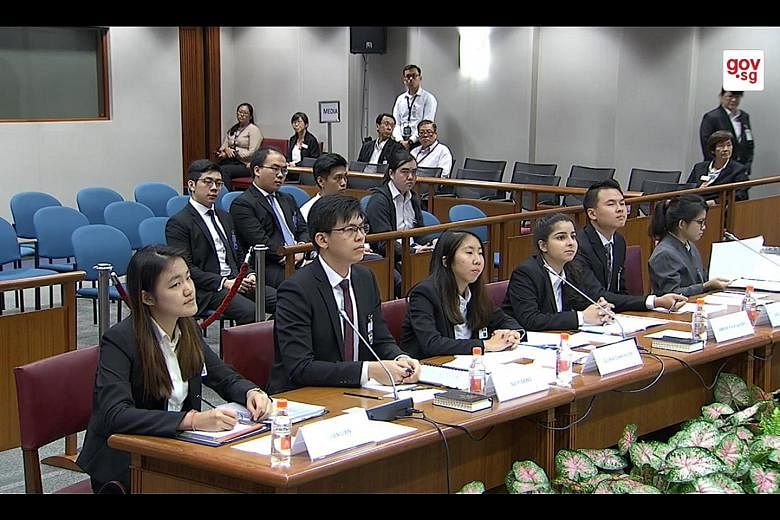Technology companies and social media platforms should be required to monitor content and held liable for failing to take down offending content in certain cases.
That is the most feasible way for Singapore to deal with the scourge of online untruths, a lawyer and a group of Singapore Management University (SMU) undergraduates told the Select Committee on deliberate online falsehoods yesterday.
They noted that the "true mischief" of the problem lies in how untruths can be disseminated to a virtually unlimited audience.
In clear-cut instances, unlawful content should be removed as fast as possible by the platform when users have alerted it to the content, said lawyer Sui Yi Siong and the undergrads in their written submission.
In other less straightforward instances, the platform should wait for a judicial order on the appropriate course of action, they said.
Doing so would strike a balance between protecting freedom of speech while keeping in check the dire consequences of allowing falsehoods to spread, they added.
Another group of students from SMU, who appeared on the same panel, suggested that existing laws be amended. For instance, the Telecommunications Act can be amended to hold to account not just those who knowingly spread falsehoods, but also those who ought to have known that the messages were false, they said.
Thus, citizens will have to scrutinise messages responsibly instead of unthinkingly passing on false messages. But there should be prosecutorial discretion as the amendment will widen the scope of potential offenders, the students added.
Separately, a former journalist from The Straits Times and Channel NewsAsia suggested separating the news operations of mainstream media companies from the rest of their business.
Their news operations can then be run under a not-for-profit umbrella to shield them from resource constraints and cost-cutting measures, said Mr Nicholas Fang, who noted that such companies have been hit by financial pressures in the light of technological disruption.
The separation will allow the mainstream media to build up the quality of content produced, said Mr Fang, who is managing director of communications consultancy Black Dot.
This, he told Select Committee member Janil Puthucheary, can enhance the appeal of such trusted sources, which take a rigorous approach to accuracy.
Readers who now pick up information from alternative sources - which can become "a playground for fake news" - can then be convinced to rely on credible news outlets instead.
Committee member Pritam Singh asked Mr Fang, who had noted flagging morale among journalists working in the mainstream media, if the low morale could be linked to out-of-bound markers that they might face in the local media industry.
Mr Fang replied that he has not faced such obstacles in his 18 years in the industry, and that it is unlikely to be the case. The problem is linked to a fall in viewership and readership over the years, he said.
Both he and Singapore University of Technology and Design's media and communication professor Lim Sun Sun also called for media literacy efforts to be stepped up.


